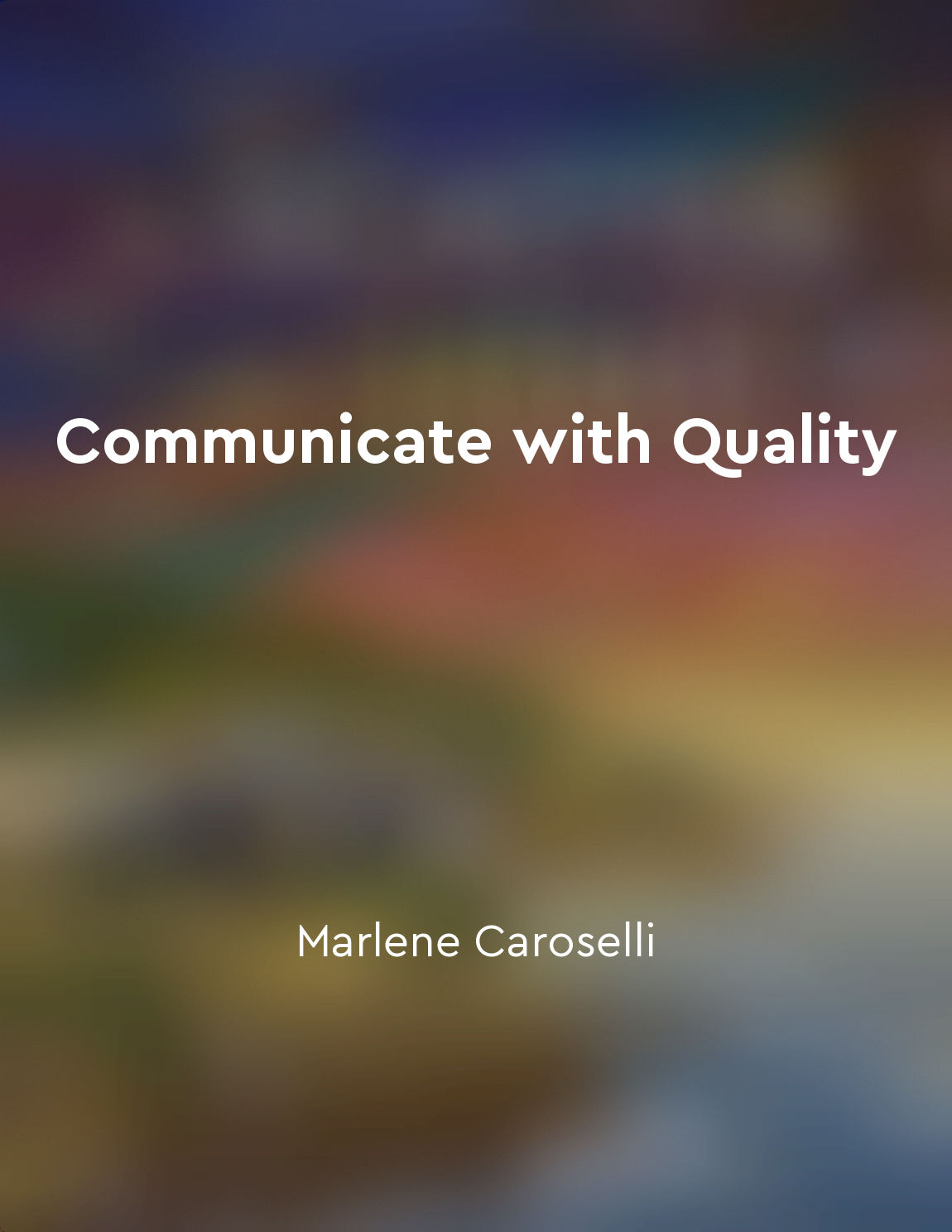Audio available in app
Develop options for mutual gain from "summary" of Getting to Yes by Roger Fisher,William Ury,Bruce Patton
When faced with a conflict, it is essential to develop options that will satisfy the interests of both parties. This involves brainstorming multiple possibilities that could lead to mutual gain. The key is to move away from a win-lose mentality towards a collaborative approach where both sides can benefit. By generating a variety of options, you increase the likelihood of finding a solution that meets the needs of each party. This process requires creativity and an open mind to explore different ideas and perspectives. It is important to consider the interests and priorities of both sides to ensure that the proposed options are acceptable to all. Developing options for mutual gain also involves separating inventing from deciding. In the inventing stage, the focus is on generating as many ideas as possible without judging or evaluating them. This allows for a free flow of creativity and encourages innovative solutions to emerge. Once a range of options has been identified, the parties can then move to the deciding stage where they evaluate each option based on its feasibility and desirability. This step involves considering the potential benefits and drawbacks of each proposal to determine which is the most suitable for mutual gain. Throughout this process, it is important to maintain open communication and a spirit of cooperation. By working together to develop options that prioritize mutual gain, the parties can increase the likelihood of reaching a successful resolution to their conflict. This collaborative approach fosters trust and understanding between the parties, laying the foundation for a sustainable agreement.Similar Posts
Developing emotional intelligence takes time and practice
Developing emotional intelligence is a process that requires dedication and effort over an extended period of time. It is not s...
Recognize the power of body language
Understanding the power of body language is crucial in the art of influencing people. Our body language speaks volumes about ou...
Trust is the foundation of cohesive team dynamics
Trust is the bedrock of teamwork. Without trust, a team can never achieve its full potential. It is the foundation upon which a...
The heart of the problem lies within ourselves
At the core of our conflicts with others is not the other person themselves, but rather our own internal struggles and insecuri...
Be firm on principles but flexible on tactics
In negotiation, it is crucial to stick to your core beliefs and values while remaining open to different approaches and strateg...
Acknowledge and validate others' feelings in communication
When communicating with others, it is important to show empathy and understanding towards their feelings. This means acknowledg...
Fostering mutual respect and appreciation in a partnership
Creating a strong foundation of mutual respect and appreciation in a partnership is essential for building a healthy and fulfil...

Demonstrate respect for others in your communication
Showing respect for others in your communication is a fundamental aspect of effective interpersonal interaction. It is about re...
Keep open lines of communication
The ability to maintain open lines of communication is a crucial skill in building strong relationships. By keeping communicati...
Communicate with clarity and empathy
When we engage in communication, it is essential to convey our thoughts and feelings clearly and with empathy. Clarity helps en...
